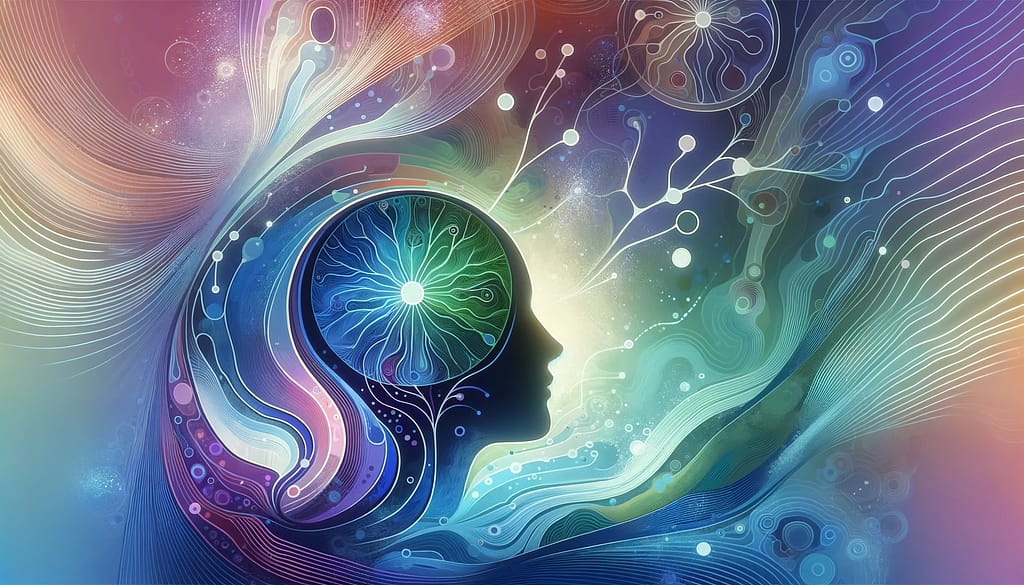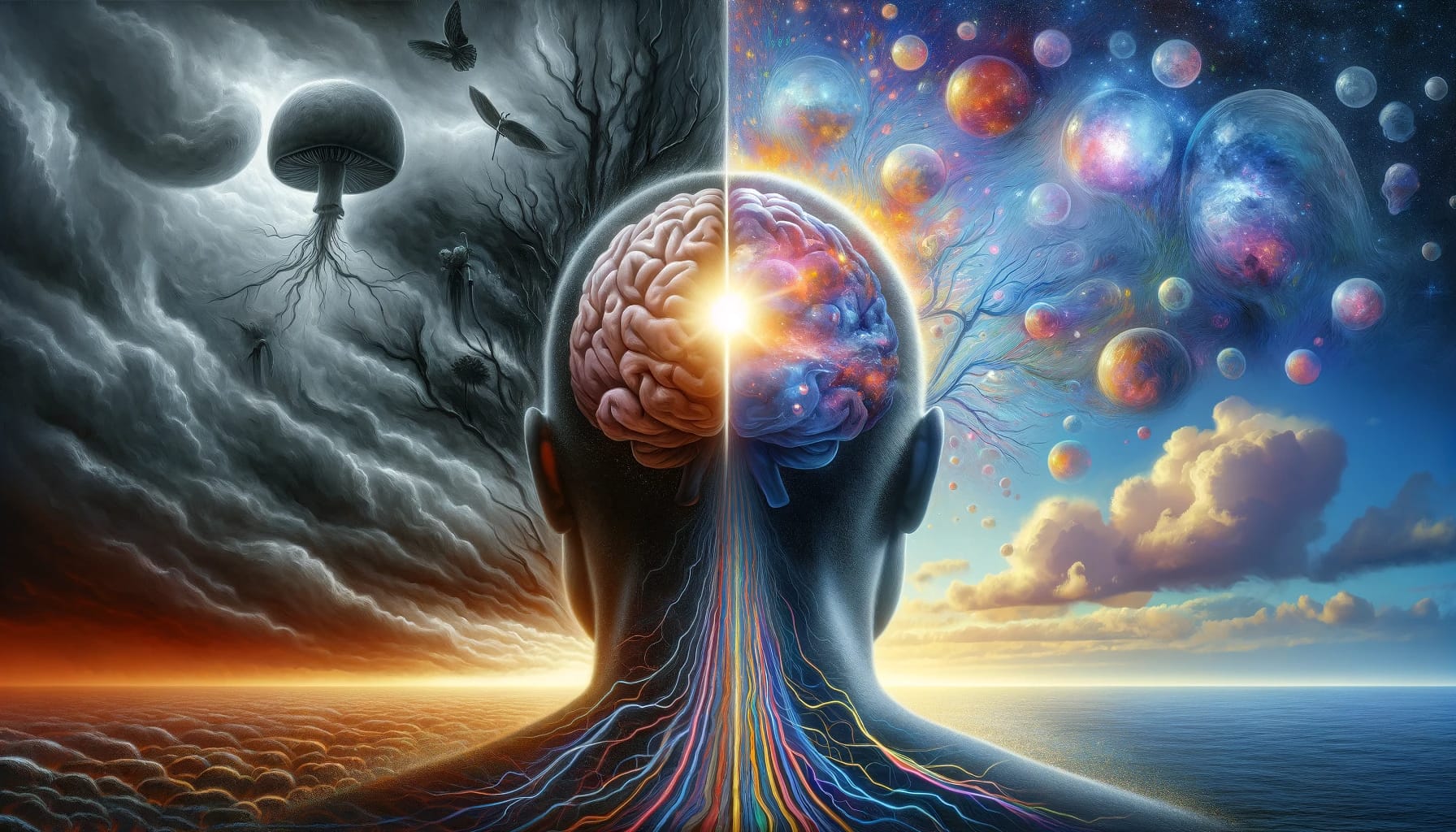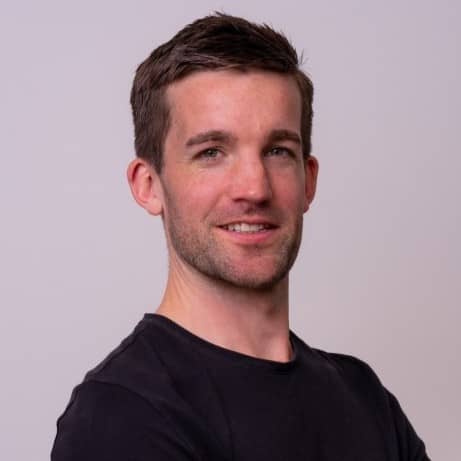In a world where depression looms as a colossal challenge, resisting conventional treatments, a glimmer of hope emerges from an unexpected source: psilocybin. Spearheaded by Guy M Goodwin , Scott T Aaronson and a team of esteemed colleagues, a groundbreaking study, “Single-Dose Psilocybin for a Treatment-Resistant Episode of Major Depression,” delves into the potential of this psychedelic compound to revolutionize our approach to mental health.
In their meticulous phase 2 trial, these visionaries explore the impact of a single dose of synthetic psilocybin, accompanied by psychological support, on adults grappling with treatment-resistant depression. Their mission is clear: to unravel the mysteries of this ancient compound and harness its power to heal minds and change lives.
Join us on this journey of discovery, where science meets hope, and where the doors to new therapeutic realms are flung wide open, promising a future where the shadow of depression might finally be lifted.
The Study in Focus: A Detailed Examination
The core of this study lies in its daring approach to treating one of the most challenging mental health conditions – treatment-resistant major depression. This phase 2 clinical trial, a beacon of innovation and hope, sets out to rigorously test the efficacy of psilocybin, a compound previously relegated to the fringes of scientific inquiry, as a viable therapeutic option.
Structured Approach and Diverse Participants
At the heart of the trial were adults who had been waging a relentless battle against depression, unyielding to conventional treatments. The study’s meticulous design involved a random assignment of these individuals into three distinct groups, each subjected to different dosages of synthetic psilocybin – 25 mg, 10 mg, and a control dose of 1 mg. This careful stratification was pivotal in dissecting and understanding the nuanced effects of varying psilocybin levels on the human psyche.
Innovative Measurement Techniques
The primary tool for measuring the impact of this treatment was the Montgomery–Åsberg Depression Rating Scale (MADRS), a widely recognized and respected metric in psychiatric research. This scale provided a quantitative lens through which the researchers could observe and record the changes in depressive symptoms, thereby offering an objective measure of the treatment’s effectiveness.
The Montgomery–Åsberg Depression Rating Scale (MADRS) is a crucial instrument in the realm of psychiatric evaluation, particularly for assessing the severity of depression symptoms. Developed by British psychiatrist Stuart Montgomery and Swedish psychiatrist Marie Åsberg, the MADRS is a ten-item diagnostic questionnaire used by mental health professionals to measure the severity of depressive episodes in patients with mood disorders. It is particularly renowned for its sensitivity to changes in depression severity, making it an invaluable tool for tracking patient progress over time and assessing the effectiveness of various treatment modalities.
Each of the ten items on the MADRS targets a specific aspect of depression, encompassing a broad range of symptoms. These include apparent sadness, reported sadness, inner tension, reduced sleep, reduced appetite, concentration difficulties, lassitude, inability to feel, pessimistic thoughts, and suicidal thoughts. The clinician conducting the assessment rates each symptom on a scale, typically ranging from 0 (no symptoms) to 6 (severe symptoms), based on the patient’s subjective report and observable signs during the interview. The total score, which can range from 0 to 60, is calculated by summing the individual scores for each item. A higher total score indicates more severe depressive symptoms.
The design of the MADRS allows for a nuanced understanding of the patient’s emotional state, capturing both the psychological and somatic components of depression. This makes it particularly effective in gauging the depth and intensity of a depressive episode. The scale’s focus on psychological rather than somatic symptoms makes it less likely to be influenced by physical illnesses, a common challenge in depression assessments.
In clinical research and practice, the MADRS is widely used for its precision and sensitivity to changes in symptomatology. This makes it an ideal tool for evaluating the efficacy of antidepressant treatments in clinical trials, as it can detect even subtle shifts in a patient’s condition. The MADRS’s emphasis on both the psychological and physical aspects of depression ensures a comprehensive assessment, providing clinicians with a detailed understanding of a patient’s mental health status and guiding them in tailoring treatment plans effectively.
Rigorous Methodological Framework
The trial was characterized by its rigorous and double-blind nature, ensuring that the results were as unbiased and accurate as possible. Participants, unaware of their group assignments, received their doses in a controlled, safe environment, accompanied by professional psychological support. This setup was crucial in ensuring the integrity and reliability of the study’s findings.
Holistic Patient Engagement
Beyond the administration of psilocybin, the study placed significant emphasis on the psychological aspect of treatment. Participants engaged in preparatory sessions prior to receiving the dose and follow-up integration sessions thereafter. This holistic approach recognized the complex interplay between the mind and the substance, aiming to maximize the therapeutic potential of psilocybin.
Global Scope and Inclusivity
Reflecting a global and inclusive approach, the study spanned multiple countries and a diverse array of participants. This broad scope not only enriched the study’s relevance across different populations but also provided a wealth of data that could pave the way for future research in varied demographic settings.
The Results: Psilocybin as a New Horizon in Depression Treatment

The study on psilocybin as a treatment for major depression presents groundbreaking findings, particularly with the highest dose of 25 mg. This dosage level stands out as a beacon of hope for patients who have found little to no relief from traditional antidepressants. In these cases, psilocybin could represent a paradigm shift, offering a new avenue for those trapped in the often relentless cycle of treatment-resistant depression.
1. Psilocybin’s Efficacy: A New Promise for Treatment-Resistant Depression
The 25 mg dose of psilocybin, in particular, demonstrates a significant reduction in depression symptoms, pointing to its potential as a game-changer in psychiatric care. This finding is pivotal, as it addresses a critical gap in current depression treatments. For patients who have journeyed through the labyrinth of existing antidepressants without success, psilocybin offers a glimmer of hope, suggesting a novel way to alleviate their suffering.
2. Personalized Medicine: Tailoring Treatment to the Individual
The study also underscores the importance of personalized medicine in mental health. The varying responses observed between the 25 mg and 10 mg doses of psilocybin accentuate the necessity of individualized treatment strategies. Mental health disorders, with their complex and varied nature, demand a treatment approach that considers the unique biochemical and psychological makeup of each patient. This study, therefore, reinforces the need for medical practitioners to carefully evaluate and customize treatment plans, taking into account the specific needs and responses of each individual.
3. Navigating the Terrain of Safety and Side Effects
While the effectiveness of psilocybin, especially at higher doses, is evident, the study also brings to light the associated risks and side effects. Instances of headaches, nausea, and more seriously, suicidal thoughts, were observed across different dosages. This aspect of the findings is a vital consideration for both clinicians and patients. It emphasizes that the journey to recovery with psilocybin is not a straightforward path. Comprehensive monitoring and support are crucial in ensuring the safety and well-being of patients undergoing this treatment. This includes not only close observation during the treatment phase but also a robust support system that addresses any side effects and psychological impacts that may arise.
Conclusion
This study marks a bold foray into the potential of psilocybin in disrupting traditional depression treatment paradigms. It’s a reminder that in the quest for healing, sometimes the answers lie in the most unexpected places. The journey of psilocybin from a naturally occurring compound to a possible pharmaceutical marvel is a testament to the ingenuity and resilience in the ongoing battle against mental illness. However, as we stand at this crossroad, the path forward demands rigorous research, ethical considerations, and a nuanced understanding of both the power and limits of psychedelic therapy.


Leave a Reply